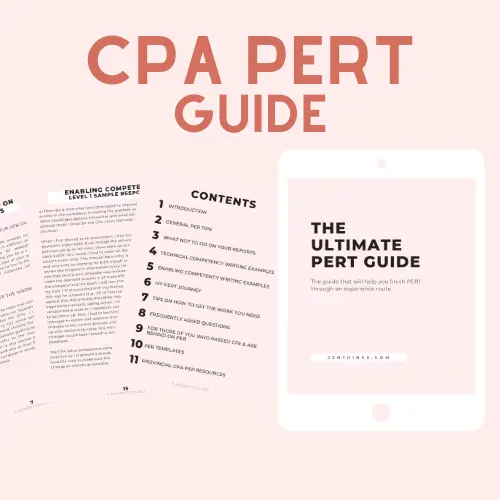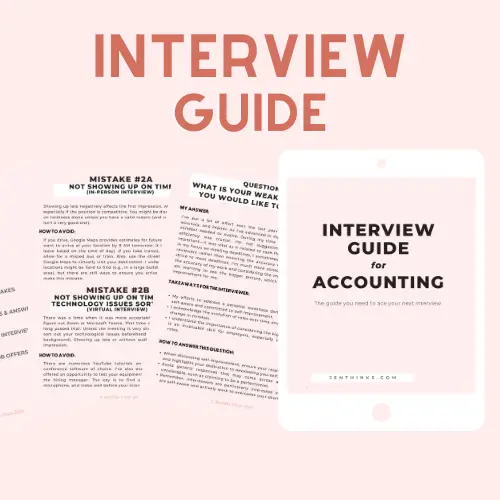I want to start this off by telling you the good news – the pass rate for CPA Core 1 was 79.4% and 81.9% in 2019 and 2020 respectively (source: CPA Canada). If you are taking Core 1, then I know there is no need to tell you that this means, statistically speaking, you are a lot more likely to pass than fail (4 out of 5 exam-writers* passed).
… statistically speaking, you are a lot more likely to pass than fail.
How Can You Make Sure You Are Part of the 80% That Pass?
The answer is to plan, work hard and be kind to yourself. I will talk about these 3 in detail in the following paragraphs which would then be followed by what to do prior and during the module.
Note, even though this post is written based on a regular core module (8 weeks), you can apply the same principles to Extended Core 1 (20 weeks). In the future, I will publish a similar post for extended modules as well as I am taking Extended Core 2 for the Winter 2020 Session.
RELATED – Densmore for CPA PEP – Are The PEP Essentials Packages Worth It?
Plan
Once the module starts, it will happen so quickly that without advance planning, you will suffer.
My recommendation is to clear your calendar for 8 weeks and accept the fact that travelling and having a social life is not possible. Your life will consist of work and CPA only.
The good news is you will most likely only have to be this strict for Core 1 for a number of reasons:
– For Core 1, there is one more module workshop weekend than Core 2 and the Elective modules (4 7-hour days in total**)
– You will most likely be overwhelmed by the different types of module assignments (MCQ, practice case, integrated problem) and deadlines as they are all new to you
– You will go into shock realizing how long the weekly readings will take you (e.g., over 100 pages to read for one of the weeks) unless you are already very familiar with the pre-requisites
– If you have never written a case using The CPA Way before, it will take you a while to familiarize yourself with it hence taking more than the suggested 60 minutes
So, don’t plan a party or a trip during the 8 weeks (not even a long weekend trip). This way, if something unexpected comes up, you will have some breathing room for a short break.
RELATED POST – CPA PERT – Technical Competencies Examples
Work Hard
I can’t speak for everyone (surely there are some geniuses out there) but most people I know, including myself, had to work their butt off for Core 1.
… designed for you to learn and build your knowledge and skills over the 8-week period so you can demonstrate competencies in both during the 4-hour exam.
The module is not designed for you to procrastinate last-minute and pass. It is designed for you to learn and build your knowledge and skills over the 8-week period so you can demonstrate competencies in both during the 4-hour exam.
Be Kind to Yourself
This might sound odd at first but let me explain.
Because the module is designed to be challenging both academically and professionally, there will inevitably be times where you doubt your own ability and whether you got it in you to succeed. You will not be alone because many of us felt the same when we did Core 1 (heck, some would probably feel that throughout the journey and that is normal). Also, being able to recognize what your shortfalls are demonstrate maturity and self-awareness and that is the first step to improvement.
~ More CPA Posts ~
CPA PEP Module – Regular Module or Extended Module?
CPA PERT – Ultimate Guide on How to Get Your First Experience Report via EVR Approved
CPA PEP – How To Debrief Cases Effectively
How to Study for the Module
This section talks about the study methods that either worked for me or wished I had done but your learning style might be completely different. I still hope it will be useful for you as a reference or as a starting point.
Prior to the Module – Supplementary Materials, Emails from CPA and Clearing Your Schedule
– Take out the textbooks you used in college as they will be great supplementary materials to the weekly readings if you struggle with a certain concept
– Try to read all the emails you get from CPA to get an idea of what to expect and Google different study strategies and experiences to narrow down a couple of ways that might work for you (like this post)
– In addition to clearing your calendar, schedule blocks of study time during the week and also on the weekends (tip: use the Monday Hour One technique); it is important to have a study schedule ready when you start the module because you would want to find out what doesn’t work as soon as possible
During the Module – Make Notes, Study Consistently, Let Go
I approached the weekly readings and assignments in the following order:
- Readings (6 – 12 hours)
- MCQ (1 hour)
- Practice Case (2 hours – infinity…. but you must keep it under 2 hours or you will never have enough time to debrief)
- Integrated Problem (2 – 3 hours)
The time you will spend on reading varies because it depends on how strong your foundation is. The material is a mix of refresh and new knowledge so the stronger your foundation, the less time you will spend on the readings. However, it is safe to schedule anywhere from 6 to 12 hours per week depending on how much reading there is. My first step is to always find out how many pages the chapters add up to so I can have a rough idea before I even start.
Also, make notes. I can’t stress how important it is to make notes that are in bullet-point form with shorter sentences from the weekly reading. I know some people who managed to somehow have time to make notes in their own words (HOWWWWW?) but I would simply copy and paste from the paragraphs and “massage” them a little to make them easier to read without the non-essential information. You will thank yourself when you study for the exam because it is impossible to review the chapters in full again.
For the cases, I know people who would spend a full day on them because it is extremely hard for them to stop and let go. Note, suggested time is only 60-minute for a practice case because this is what you will be given on the exam. Those people would fall into this rabbit hole trying to look for the right answers. However, at your orientation workshop, you will be reminded repeatedly that debriefing the cases is as important, if not more important, than attempting the case itself. This is because debriefing the case properly is 50% of the learning.
Your facilitator and exam marker are looking for the full package – not your fancy quantitative analysis or the recommendation alone but competencies all the way from identifying the issue to making a supported recommendation.
One of the most important things I have learned from my Core 2 module workshop is that “good enough is enough.” Your facilitator and exam marker are looking for the full package – not your fancy quantitative analysis or the recommendation alone but competencies all the way from identifying the issue to making a supported recommendation.
This means not getting stuck on any part of a case (e.g., the quantitative analysis) and do your best and move on.
SUGGESTED POST – What to Study for CPA PEP Core 2 Exam?
How to Study for the Exam
Two Weeks Prior to the Exam – Study Plan
Your Week 8 assignments are due less than a week before your exam date which means your study review would start around the time Week 7’s assignments are due. This is going to be challenging because you will be studying on top of the weekly readings and assignments. Some people would choose not to attempt Week 8’s cases because they accumulated enough marks to be eligible for the exam.
However, I would suggest trying your best to attempt anyway so you can get your facilitator’s feedback. If you haven’t already, at this stage, make sure you are writing the case in 60-minute and then submit. This is to ensure you know where you truly stand in terms of case-writing.
To come up with a study plan, I sat down and had the calendar in front of me. I then came up with the following list:
- Review Week #1 Notes (1 – 2 hours)
- Attempt Week #1 MCQ without notes & review the answer key for both correct and incorrect responses (1 – 2 hours)
- Attempt Week #1 Practice Case (1 hour) and debrief (45 minutes)
- Attempt Week #1 Integrated Problem (1.5 hours) and debrief (45 minutes)
…. continue for the rest of the 7 weeks
If you add the time up and multiple it by 8 weeks, it will take a minimum of 48 hours or an average of 3.5 hours per day for 14 days. However, if you have been doing well for the 6 weeks leading up to this, you might not need as much as you thought for some topics.
The key takeaway is to make sure you have a study plan. You will find that having a plan helps ease your anxiety as well so it is more than just blocking time to study.
The Day Before the Exam – Relax and Eat Well
I took the day off work and treated myself to a stay (read about it here) at a hotel close to the exam centre the day before the exam. In hindsight, I wish I was prepared enough to not have to study the day before as it will help me relax. So, my suggestion to you is to create your study plan (previous step) with that in mind.
If that is not possible, at least make sure you have no other obligation that day (work, family, friends etc). Eat well and go to bed early. Don’t try new and exciting food to avoid an upset stomach (my sister’s advice for me actually).
If at 10 PM, you start questioning yourself why haven’t you worked harder or studied more, remember you need to be kind to yourself. You might not realize then but you will later when your loved ones and closest friends tell you how crazy hard you worked.
You got this.
On the Day of the Exam – Rock It!
Wake up early, have a light and safe breakfast and arrive at the exam center early.
I would avoid reviewing your notes because it will do nothing positive other than increasing your anxiety. Also, avoid chatting with people just before the exam because they might say something (e.g., do you know how to recognize revenue?) that might trigger your anxiety. Trust me, you know how to recognize revenue after 8 weeks of doing nothing but.
The last thing you will need to do is your lucky ritual if you have one. I don’t really but I lost track of the number of times I made a wish at 11:11 AM*** prior to this.
Conclusion
I want to remind you again that the CPA Core 1 Module is designed to be challenging but not impossible (remember, most people passed). All you need is a plan and a lot of effort. You might not have time to reflect at the moment but you will realize the module teaches you more than just the technical skills. It teaches you your learning style, how to be self-motivated and truly balance work, school and life.
*people who are absent from the exam do not count towards the average
**subject to changes as CPA adopts the new virtual format
*** I function in 24-hour format and do not consider 11:11 PM the same as 11:11 AM :p


